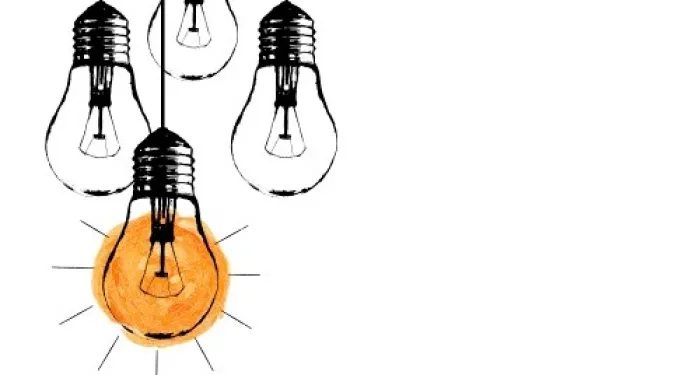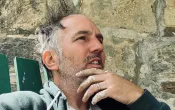
Dec 16 | 2022
Crazy Good Quotes 2022: Unforgettable Ideas and Advice from Guests
A world-renowned poet. An Army vet working to rescue American allies stranded in Afghanistan. And a cancer survivor with a unique talent for seeing clearly so many reasons we all have to be grateful for every day.
These were just some of the incredible guests featured on Crazy Good Turns in 2022.
We also spoke with some of the leading minds in philanthropy and business. Each guest provided new ideas to think about. Some offered entirely new ways to look at life. And sometimes they did it with something so simple as a sentence.
Poet Provokes Several Lasting Questions
When poet David Whyte joined us to respond to listener questions about his book Consolations: The Solace, Nourishment and Underlying Meaning of Everyday Words, we had a feeling the discussion would be memorable. We were not disappointed.
Whyte, who's said to be able to recite more than 300 poems from memory, provided us with several unforgettable lines. Including this passage from fellow poet David Ignatow:
"I wish I knew the beauty of leaves falling. To whom are we beautiful as we go?"
After the interview, Frank wrote about how he felt this was one of the "all-time best" questions he's considered. The words remind us how each day, in so many of our actions, someone is watching us. What do they see? What example are we setting?
Meanwhile, our producer Brian Sabin often finds himself returning to Whyte's explanation of why the term "conversation" applies not only to person-to-person interaction, but also to forces of nature. These conversations matter, Whyte explained, because:
"The only place where things are real is where I'm meeting something other than myself."
Today we live in a society that's "retreated into its own corners," as Whyte put it. Technology allows us to surround ourselves with our own beliefs rather than engage with the views of others. The above quote reminds us of the folly in that approach.
Associate producer Megan Hanlon pointed to the following line from Whyte as memorable:
"I often say poetry is the art of overhearing yourself say things you didn't know you knew."
With its rhythm, descriptive language, and brevity, poetry evokes a different experience than reading or listening to anything else. That experience often sparks a conversation with oneself; an internal discussion about how you interpret the language and how it feels or applies to your life.
Lastly, Whyte's thoughts on regrets are something we think everyone can live by:
"Whenever I meet people who say they have no regrets, I always say to myself, 'Where have you been all your life? And: You need to get out more.'"
An Army Veteran's Lessons For Overcoming Injury
Matt Zeller first appeared on our podcast during Season 3, when he and Janis Shinwari spoke about their efforts help Afghan translators who'd assisted the U.S. military. Unfortunately their warnings fell on deaf ears at the White House, and many of their worst fears unfolded when Afghanistan fell to the Taliban.
Matt rejoined us for the one-year anniversary of the fall of Kabul, talking openly of the "grave moral injury" he and other veterans suffered by our country's failure to follow through on promises made to allies. "A moral injury is really insidious because it's an injury of the soul," Zeller said. "So it's the hardest to treat. You can't take a pill for it." He added:
"The only way to truly heal from a moral injury is through acts of service, doing good deeds for others in need."
This may explain why Zeller and Shinwari haven't given up the fight. Today they're working to rescue stranded allies through what they call "the Afghan Underground Railroad." The work is beyond challenging, both logistically and emotionally. But they are not alone, and the shared struggle has done much to renew Zeller's faith in his home country. As Zeller says:
"Shared experience is the most powerful bonding tool that human beings have."
What Survival Teaches You
Kristi Nelson is the executive director of the nonprofit Grateful Living and author of Wake Up Grateful: The Transformative Practice of Taking Nothing for Granted. She's also a cancer survivor. And she shared how her brush with death transformed her outlook on life:
"When I say 'not dying changed everything,' it is about the fact that every day that we don't die, we're given an opportunity."
What's the opportunity? Simply put, it's a chance to exist. To live. To be here. That's an unimaginable gift that we often fail to fully appreciate. Which is why she fundamentally questions the idea of "pessimism" or "optimism." Nelson said:
"When we ask, 'Is the glass half full or half empty?' We forget that, in life, the glass itself is a miracle. If you didn't have that, you have nothing."
This was the first time we'd ever heard someone challenge the premise behind "half full or half empty." We'll never look at the question the same again.
Nelson's interview shows how she is uniquely capable of appreciating life at an astonishlngly granular level. She notices details many of us blow past. And by paying attention, Nelson says we can achieve a life more full of gratitude:
"We can't be grateful for everything. But we can be grateful in every moment with the right perspective."
How To Make a Change — and Make a Difference
Another guest who chooses to see opportunity in even the most challenging circumstances is Jason Feifer. Jason recently wrote the book Build for Tomorrow: An Action Plan for Embracing Change, Adapting Fast, and Future-Proofing Your Career.
The book puts forth the idea that, usually, the first response people have to change of any sort is "panic." But Feifer explains that in nearly any situation:
"The things that you are going through are not as big as they feel. The changes that you are experiencing are not end-all be-all."
Avoiding panic, or exiting it as quickly as possible, is important because panic causes people to make bad decisions. A trick to finding the way forward, Feifer says, is to compartmentalize:
"When you can separate 'what' you do from 'why' you do it, you can move through any moment of change. Because you can see what you still have. Now you just need to find a new way to do it. Doesn't make it easy, but it certainly gives you an orientation."
Another guest who came to us with great advice about the world of business is Ben Todd. He co-founded the nonprofit 80,000 Hours, which helps people identify and get placed within impactful careers. Todd and his team have studied some of the biggest challenges facing the world today. Todd's advice for how to make a difference:
"Your time is the biggest resource you have to contribute to the world and make it a better place."
On 'Legacy' and What Matters Most
It's difficult to imagine someone who's led a fuller and more accomplished life than Bernie Marcus. Coming from a humble upbringing, he helped launch The Home Depot, which in more than four decades of operation provided the means to make a living to millions of associates.
Marcus also has been one of the most generous philanthropists of his time, donating billions of dollars to charitable causes. So we found it striking when Marcus said the achievement that brings him the most joy can be summed up in one word: People. Specifically, the people inside Home Depot stores.
"People who give with their heart, who care about other people, worry about other people, and help other people."
This quote is a great example of who Bernie is and what he values. But it also reflects the brilliance of the culture he helped create at Home Depot, which continues to this day.
Did we leave something out? Was there a quote from this past year that you especially enjoyed? If so, tell us about it on Facebook, Twitter or by emailing us here.
